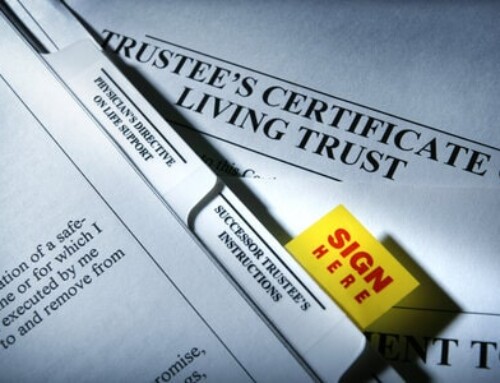 How to Avoid Probate without a Trust
How to Avoid Probate without a Trust
Avoiding probate without a trust is not always the best solution but it is possible. Most of my clients come to my office with the primary objective of avoiding probate. If your goal is to transfer your assets free of probate, a Living Trust may be a good solution for you. However, if you are attempting to avoid probate without a trust, this article will explain how. Before covering the how to, it’s important to briefly explain probate and why many want to avoid it.
What is Probate:
Probate is the process where the State determines how to settle an estate. Depending on if you have a Last Will or not, they determine whom shall be your Personal Representative (Executor), and whom shall inherit your assets. The State also supervises probate cases to ensure that outstanding creditors are paid.
Most individuals want to avoid probate for 3 reasons; cost, delays, and privacy. Probate Court is not free, nor are the attorneys that your heirs will probably have to hire to help file the petitions and navigate the probate process. These costs cut into the inheritance of your heirs. No one wants to drag out this process, however, the quickest your heirs can get through probate is about 5-6 months, assuming everything is perfect and smooth. Let’s be honest, these things rarely are problem free, most probate cases take much longer, some take years.
These delays can be frustrating, as they for their inheritance. Last is privacy, when it comes to probate, there really isn’t much privacy. Your probate case is public record, and in Arizona, anyone with an internet connection and curiosity can look up your case. Public records will allow them to see what assets you owned at death, and who your creditors were.
For many, a Revocable Living Trust is a great solution, but if you still want to avoid probate without a trust, here are the steps:
-
Beneficiary form:
Beneficiary forms by nature not only avoid probate but hold up in court. Even the US Supreme Court held that other legal documents cannot change what a beneficiary form states. This makes it very important that you keep these documents updated. Beneficiary forms are used for assets such as Insurance: Annuities, Life Insurance, and other policies with a death benefit. They are also found on Retirement Accounts: 401(k) 403(b) 457 Plan, and SEP. As well as on all types of IRA’s: Traditional, Rollover, ROTH, Inherited, SEP, and SIMPLE.
Don’t forget to keep beneficiary forms updated, they will always be followed. Here is a common scenario, you name your spouse as beneficiary, later divorce, remarry. If you do not update your beneficiary form, at your death your ex-spouse will inherit that asset. Even if your Last Will & Testament names your new spouse, if those forms still name your ex-spouse, that is who will inherit.
In the State of Arizona, our Motor Vehicle Division has provided us with a beneficiary form to transfer title. These include vehicles, motorcycles, trailers, or any asset that would be titled through the MVD and avoid probate.
-
Payable on Death (POD)
POD is an account designation specific to bank accounts. Payable on Death designation can be used for checking, savings, and certificates of deposits. If you are married, you may title these accounts as Joint with Rights of Survivorship. Adding a POD (Payable on Death) designation will ensure the assets are available and avoid probate at the death of the survivor. Be careful not to title your adult children on your bank accounts, doing so could be a taxable gift and would expose that account to the creditors of that adult child.
-
Transfer on Death (TOD)
Transfer on death is much like Payable on death, however, TOD is for investment accounts. Now many people consider there 401(k), IRA or other Retirement accounts as investment accounts, and while they are, these follow the Beneficiary Designation we spoke of earlier. Investment accounts are referred to as non-qualified investment accounts or in other words non-retirement accounts. Transfer on Death allows your named individual to inherit the property in-kind. In other words, if you owned 100 shares of Disney Stock, worth $10,000, your named TOD would not inherit $10,000, they now own 100 shares of Disney.
-
Beneficiary Deed
A beneficiary deed will allow you to transfer real property at death. This could be your home (primary residence) seasonal homes, rental homes, undeveloped land, really, any real estate property. Just like the TOD designation, your named beneficiary would own the real property you left behind.
In closing, while it is possible to avoid probate without a trust, there are many more advantages to utilizing a Revocable Living Trust. Many times these so-called Do-It-Yourself Estate Planning techniques fail for various reasons. It is important before you do anything you meet with an Estate Planner. Although avoiding probate is important, there are many more important consideration when it comes to Estate Planning. If you choose to avoid probate without a trust, consider creating a Last Will and Testament as a backup. If you end up with Probate assets, your heirs will appreciate that you prepared at least a Will.






Leave A Comment
You must be logged in to post a comment.